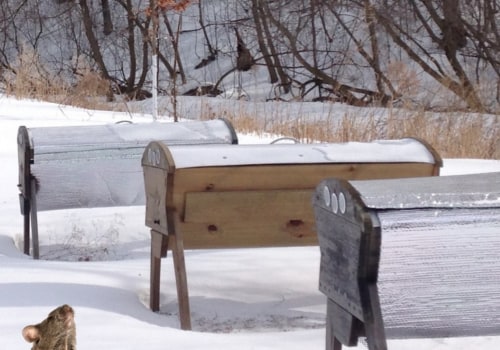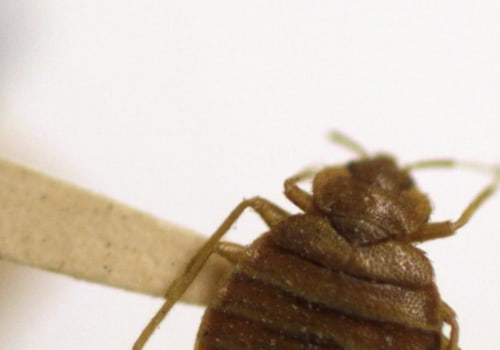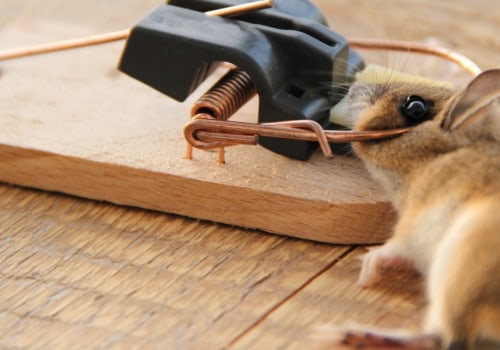Pests and rodents are not only a nuisance but also potential health hazards. They can damage property, contaminate food, and spread diseases, making pest control an essential part of maintaining a safe and comfortable home. The good news is that with a few proactive strategies, you can significantly reduce the likelihood of pest and rodent infestations. From proper sanitation to preventative maintenance, there are various measures that homeowners can take to create an environment that’s less attractive to these unwelcome guests. In this guide, we’ll cover essential strategies to keep your home pest- and rodent-free.
Keeping a Clean and Clutter-Free Home
Maintaining cleanliness is one of the most effective ways to deter pests and rodents. Pests like ants, cockroaches, and rodents are drawn to food and water sources, so eliminating these attractions can help reduce infestations. Start by keeping food sealed in airtight containers, regularly wiping down countertops, and promptly cleaning up spills. Sweep and mop floors frequently to remove crumbs, and ensure that garbage is disposed of in tightly sealed bins. Pay special attention to the kitchen, where food residue is common, and keep pet food stored in secure containers to avoid attracting pests. Additionally, reducing clutter around the house eliminates hiding spots for rodents, particularly in storage areas and basements.
Seal Entry Points
Rodents and insects can enter through even the tiniest gaps, so sealing potential entry points is crucial in keeping them out. Inspect the exterior of your home for cracks, holes, and gaps, especially around windows, doors, and utility pipes. Use caulking or expanding foam to seal small gaps and install door sweeps on exterior doors to prevent entry. For larger openings, consider using steel wool, which rodents can’t chew through. Additionally, screens on doors and windows should be kept in good repair to block insects from getting inside. J&J Roofing & Construction, while primarily focused on roofing, also advises homeowners to inspect areas like the roof and attic for potential entry points, as these spaces are common access points for rodents and pests.
Maintain Your Yard and Landscape
Outdoor maintenance plays a significant role in keeping pests and rodents away from your home. Overgrown plants and dense vegetation can provide shelter for pests, so keep grass trimmed and bushes pruned. Avoid stacking firewood or other materials close to your house, as these can attract rodents and insects. Additionally, consider using gravel or mulch that doesn’t retain moisture directly around the foundation of your home, as moist environments attract pests like ants and termites. By creating a yard that’s less inviting, you can help reduce the risk of pests finding their way inside.
Proper Waste Management
Garbage and recycling areas are prime targets for pests. To reduce their attraction, use garbage bins with tight-fitting lids and store them away from entrances. Ensure that trash is taken out regularly and keep the area around bins clean to avoid leaving food residue that could attract pests. If you have a compost pile, cover it and ensure it’s situated far from your home to avoid attracting rodents. Proper waste management reduces food sources for pests and keeps them from congregating near your home.
Eliminate Standing Water
Standing water can attract mosquitoes and other pests that breed in wet environments. To prevent this, eliminate water sources around your property by fixing leaky faucets, repairing any damaged gutters, and ensuring proper drainage around the foundation. Check for any objects that might collect water, such as empty flower pots, birdbaths, or clogged gutters. Indoors, monitor areas prone to moisture, such as basements and bathrooms, and use a dehumidifier if necessary. By reducing excess moisture, you’ll make your home less appealing to pests that thrive in damp environments.
Using Pest-Repellent Plants
Certain plants act as natural repellents for pests and can be strategically placed in and around your home. For example, lavender, mint, and marigolds can deter mosquitoes and other insects due to their strong scents. Rosemary and basil are also effective against certain pests and can be used both indoors and outdoors. Incorporating these plants into your garden or indoor spaces not only enhances aesthetics but also provides an eco-friendly way to keep pests at bay.
Hiring Professional Pest Control
For serious infestations or preventive measures, it’s often beneficial to hire a professional pest control service. Professionals have the expertise and tools to identify potential problem areas and provide targeted treatments. Many pest control companies offer ongoing service plans that ensure regular inspections and treatments, helping keep pests under control year-round. Professional services can be particularly helpful for issues with hard-to-eradicate pests, like termites or bedbugs, which require specialized treatment.
Regular Home Maintenance
Routine home maintenance is another critical component of pest prevention. Fixing damaged screens, repairing cracks in walls, and regularly inspecting your roof and foundation can help you catch and address issues before they become larger problems. In addition to preventing pests, consistent upkeep can also add to your home’s overall value and longevity. By maintaining a proactive approach, you’ll not only keep your property in excellent condition but also discourage pests from taking up residence.
Conclusion: Creating a Pest-Free Environment
Reducing pests and rodents requires a combination of preventive strategies, proper sanitation, and regular maintenance. From sealing entry points to keeping a clutter-free home, these steps can significantly reduce the likelihood of infestations. By staying vigilant and making small adjustments, you can create an environment that is far less appealing to pests. And if issues persist, professional pest control services can provide additional support. Taking these measures will help keep your home pest-free and ensure a healthier living space for you and your family.




